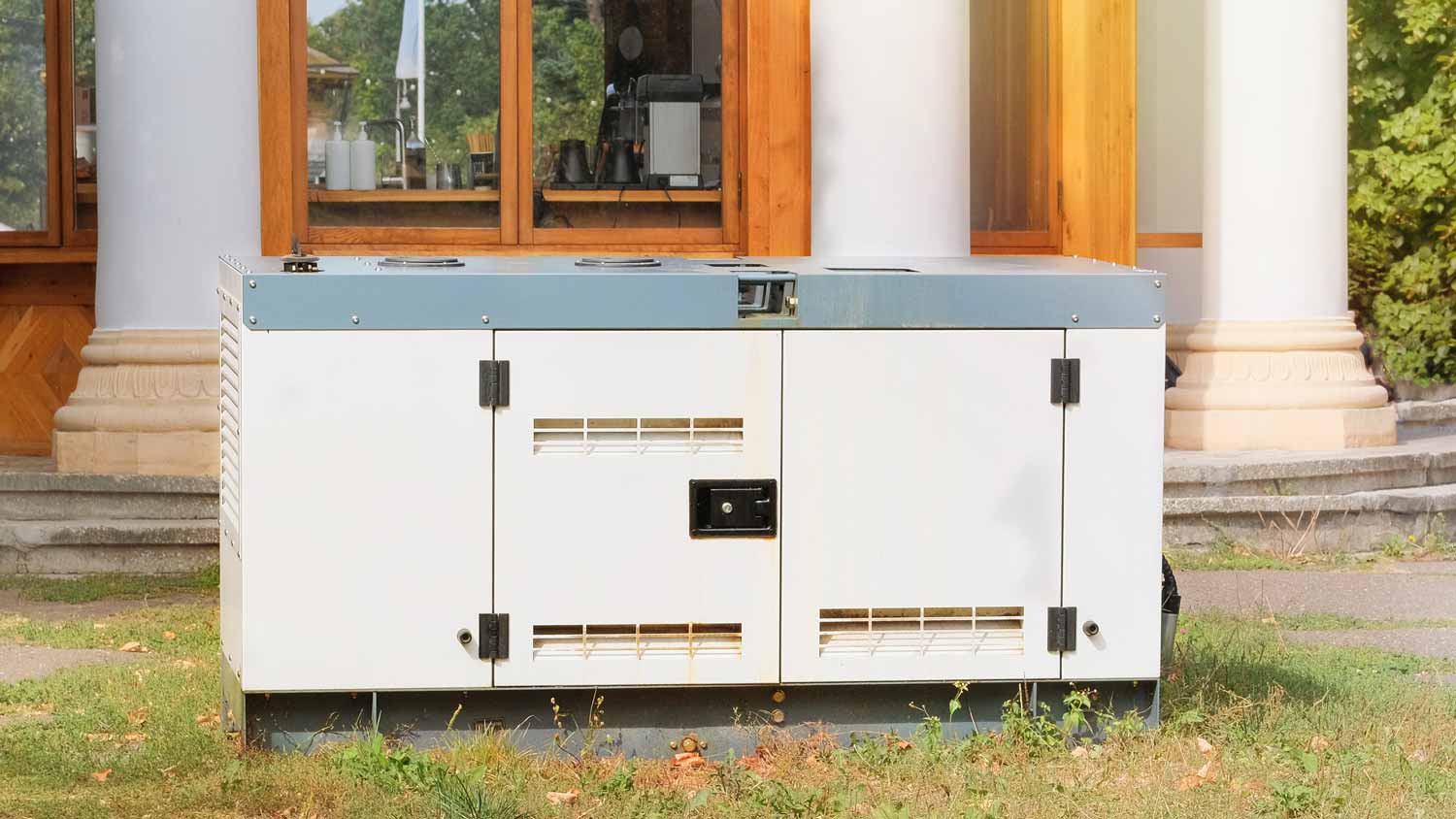
Get matched with top generator installers in West Brownsville, PA
There are 0 highly-rated local generator installers.
Matching on Angi


Verified Reviews for Generator Installation pros in West Brownsville, PA
*The Angi rating for Generator Installation companies in West Brownsville, PA is a rating based on verified reviews from our community of homeowners who have used these pros to meet their Generator Installation needs.
*The HomeAdvisor rating for Generator Installation companies in West Brownsville, PA is a rating based on verified reviews from our community of homeowners who have used these pros to meet their Generator Installation needs.
Last update on April 29, 2025
Generator installers in West Brownsville
Alpha, is committed to excellence in every aspect of our business. We uphold a standard of integrity bound by fairness, honesty and responsibility in all of our jobs. We are a locally owned and operated business with more than 7 years of experience serving Pittsburgh, PA and surrounding areas. There is no job too big, or too small for our team. Call today and let us put our experience to work for you!
Alpha, is committed to excellence in every aspect of our business. We uphold a standard of integrity bound by fairness, honesty and responsibility in all of our jobs. We are a locally owned and operated business with more than 7 years of experience serving Pittsburgh, PA and surrounding areas. There is no job too big, or too small for our team. Call today and let us put our experience to work for you!

The Margroff Company is a full service electrical company with over 20 years of experience. We are honest, loyal and provide the best customer satisfaction int own. We pay close attention to detail and owner, Jubal, is always on site to ensue quality work. Call us for a free estimate!
"Fantastic company! They went above and beyond."
Dave P on August 2019
The Margroff Company is a full service electrical company with over 20 years of experience. We are honest, loyal and provide the best customer satisfaction int own. We pay close attention to detail and owner, Jubal, is always on site to ensue quality work. Call us for a free estimate!
"Fantastic company! They went above and beyond."
Dave P on August 2019

Hurricane Home Solutions is committed to a superior experience, offering prompt service and attention to detail. Customer satisfaction is our top priority, we will earn your trust for a lifetime. We believe in being there for you when the lights go out, which is why we offer 24/7 emergency services. We work with major brands including Cummins, Generac and Champion to ensure that we can provide homeowners with the best unit for their unique circumstances. You can be assured you're in good hands with our company installing your new home generator. If you are looking for a professional that follows business practices such as promptly returning phone calls, arriving on time for appointments and following through on promises then give us a call today. GUARANTEED COMPETITIVE PRICING!
"Really do a good job"
Richard I on December 2023
Hurricane Home Solutions is committed to a superior experience, offering prompt service and attention to detail. Customer satisfaction is our top priority, we will earn your trust for a lifetime. We believe in being there for you when the lights go out, which is why we offer 24/7 emergency services. We work with major brands including Cummins, Generac and Champion to ensure that we can provide homeowners with the best unit for their unique circumstances. You can be assured you're in good hands with our company installing your new home generator. If you are looking for a professional that follows business practices such as promptly returning phone calls, arriving on time for appointments and following through on promises then give us a call today. GUARANTEED COMPETITIVE PRICING!
"Really do a good job"
Richard I on December 2023
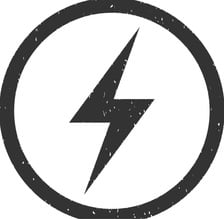
We take great pride in our experience, expertise, quality, and customer service that we provide to meet the consumer's needs. It is our mission to provide excellent workmanship and complete customer satisfaction, from the start to the completion of a project. In order to understand the needs and expectations of our customers, we take great care to work and communicate with every customer in a professional manner. Our reputation is based on service, safety, and quality, regardless of how large or small the job.
"Installed bathroom fan/light. Quick turnaround, responsive, and affordable. Will use them again in the future!"
Mikaela B on March 2025
We take great pride in our experience, expertise, quality, and customer service that we provide to meet the consumer's needs. It is our mission to provide excellent workmanship and complete customer satisfaction, from the start to the completion of a project. In order to understand the needs and expectations of our customers, we take great care to work and communicate with every customer in a professional manner. Our reputation is based on service, safety, and quality, regardless of how large or small the job.
"Installed bathroom fan/light. Quick turnaround, responsive, and affordable. Will use them again in the future!"
Mikaela B on March 2025
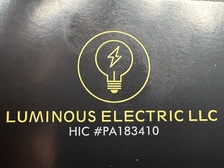
Luminous Electric LLC, specializes in electrical work in Allegheny, Washington, Butler, Westmoreland, and Fayette counties. As a locally owned and operated business with over 12 years of experience, we provide quality work and prompt service. All work is guaranteed and fully insured. We handle any residential panel upgrade, switches, outlets, fixtures, tv wall mounts, fans, ev chargers, pool heater wiring, spa wiring and much more! Give us a call today! 412-652-3830
"Quick response. Quality and thorough installation of replacement ceiling fan."
Harry B on September 2021
Luminous Electric LLC, specializes in electrical work in Allegheny, Washington, Butler, Westmoreland, and Fayette counties. As a locally owned and operated business with over 12 years of experience, we provide quality work and prompt service. All work is guaranteed and fully insured. We handle any residential panel upgrade, switches, outlets, fixtures, tv wall mounts, fans, ev chargers, pool heater wiring, spa wiring and much more! Give us a call today! 412-652-3830
"Quick response. Quality and thorough installation of replacement ceiling fan."
Harry B on September 2021

WB Lightning Rods is a third-generation lightning protection contractor. Family Owned and operated for over 60 years. installing U.L. Listed Lightning protection systems, All Over the East coast, Midwest south east and south west regions of the U.S. Installations on Residential Homes, Estate Properties, Agricultural and Equestrian Properties. Lightning Protection for trees is also available. No job to big or small References upon Request. Contact us today for a no cost or obligation estimate. We look forward to working with you on your Lightning Protection Project. Thank you. **WE ARE NOT ELECTRICIANS** **WE ONLY INSTALL LIGHTNING PROTECTION SYSTEMS **
"Great company, they were fast, friendly, & accommodating. I would definitely use them again."
Jennifer B on October 2024
WB Lightning Rods is a third-generation lightning protection contractor. Family Owned and operated for over 60 years. installing U.L. Listed Lightning protection systems, All Over the East coast, Midwest south east and south west regions of the U.S. Installations on Residential Homes, Estate Properties, Agricultural and Equestrian Properties. Lightning Protection for trees is also available. No job to big or small References upon Request. Contact us today for a no cost or obligation estimate. We look forward to working with you on your Lightning Protection Project. Thank you. **WE ARE NOT ELECTRICIANS** **WE ONLY INSTALL LIGHTNING PROTECTION SYSTEMS **
"Great company, they were fast, friendly, & accommodating. I would definitely use them again."
Jennifer B on October 2024
Bill Brown Electric was founded by William Brown in 1972. This is a family owned business that has been going strong for over 30 years and we'd love to help assist you on anything related to our business, some examples of what we do are listed as followed, (whole house generators, hot water heaters, breaker boxes, new and old work, dusk to dawn lights, hot tubs, whole house surge protectors and so much more. We do free estimates. Our business email is BillBrownElectric@gmail.com Bill Browns work number is (724)984-9389 Brad Browns work number is (724)366-6377. leave a voicemail if no answer or email and we will get back to you as soon as possible. We look forward to your service.
Bill Brown Electric was founded by William Brown in 1972. This is a family owned business that has been going strong for over 30 years and we'd love to help assist you on anything related to our business, some examples of what we do are listed as followed, (whole house generators, hot water heaters, breaker boxes, new and old work, dusk to dawn lights, hot tubs, whole house surge protectors and so much more. We do free estimates. Our business email is BillBrownElectric@gmail.com Bill Browns work number is (724)984-9389 Brad Browns work number is (724)366-6377. leave a voicemail if no answer or email and we will get back to you as soon as possible. We look forward to your service.
We can manufacture machine components, fabricate and assemble electro-mechanical equipment, rebuild equipment and manufacture cables and harnesses for electrical equipment. We can manufacture machine components, fabricate and assemble electro-mechanical equipment, rebuild equipment and manufacture cables and harnesses for electrical equipment. Engineering expertise is available for instrumentation design, sensor and sensor interface-electronic software and component level electronic hardware. AES also provides software programming and technical writing.
We can manufacture machine components, fabricate and assemble electro-mechanical equipment, rebuild equipment and manufacture cables and harnesses for electrical equipment. We can manufacture machine components, fabricate and assemble electro-mechanical equipment, rebuild equipment and manufacture cables and harnesses for electrical equipment. Engineering expertise is available for instrumentation design, sensor and sensor interface-electronic software and component level electronic hardware. AES also provides software programming and technical writing.
Our goal is to provide great service to all our customers. We offer multiple services from energy savings programs to emergency and non-emergency service work on both residential and commercial equipment.
Our goal is to provide great service to all our customers. We offer multiple services from energy savings programs to emergency and non-emergency service work on both residential and commercial equipment.
First Power and Light is a leader in the Mid-Atlantic region for the design, construction, maintenance and financing of PV Solar, solar thermal and wind energy systems, energy efficient lighting design and installation for commercial and residential customers. We design custom, turn-key solutions to serve any application.
First Power and Light is a leader in the Mid-Atlantic region for the design, construction, maintenance and financing of PV Solar, solar thermal and wind energy systems, energy efficient lighting design and installation for commercial and residential customers. We design custom, turn-key solutions to serve any application.
Generator installations FAQs
Installing a whole-house generator costs about $5,000 on average. Prices range from $1,550 to $8,500, depending on size, brand, fuel type, and assembly. The size of your whole-house generator is the most significant cost factor, with large homes with high energy demands costing the most to power. Types of whole-home generators include:
Portable generators with 1kW–7.5kW capacity: $500–$2,000
Partial generators with 9kW–20kW capacity: $2,000–$6,300
Whole-house generators with 22kW–48kW: $5,000–$18,000
When maintained properly, a whole-house generator can last up to 20 years. Costs to maintain and repair generators vary by location and type of generator, but you can expect to pay about $150 to $300 per year for annual generator maintenance checks. An experienced generator service technician will inspect your generator’s engine filter, starting mechanism, fuel, lubrication, and coolant levels to keep your generator in good working condition for as long as possible.
When choosing the right size generator for your needs, consider a few items to help calculate the wattage you’ll need. Start by determining which household items and appliances you want to power, and then add the wattages together. Check out the wattage of these essential appliances:
Refrigerator: 600 watts
Large dehumidifier: 700 watts
Large window air conditioner: 1,400 watts
Water heater: 3,000 watts
Running home appliances like these requires a partial or whole-house generator. A portable generator may be enough to power your home if you only plan to keep a refrigerator and freezer running.
Here’s what you can run with different wattages and types of generators:
Portable generator:
2,000 watts can handle a large appliance like a freezer or refrigerator, plus a few smaller items like phones or computer chargers.
4,000 watts will keep two large appliances operating and a few smaller devices.
8,000 watts should power most essential appliances and other devices, including a sump pump, well pump, or your dishwasher.
Partial to whole-house generator:
20,000 watts and above will make it seem like your home’s power is still on.
The value of installing a whole-house generator is that your home has guaranteed power, even if the power grid in your area is down. Whether a whole-house generator is worth installing in your home depends on how often you use it, your home’s location, and your lifestyle. For example, installing a whole-house generator is likely worth it if you:
Experience frequent or prolonged power outages
Work from home
Store a lot of cold food
Have a sump pump
Have a pump for well water
Use electronic medical devices
Live in a climate requiring heating or cooling


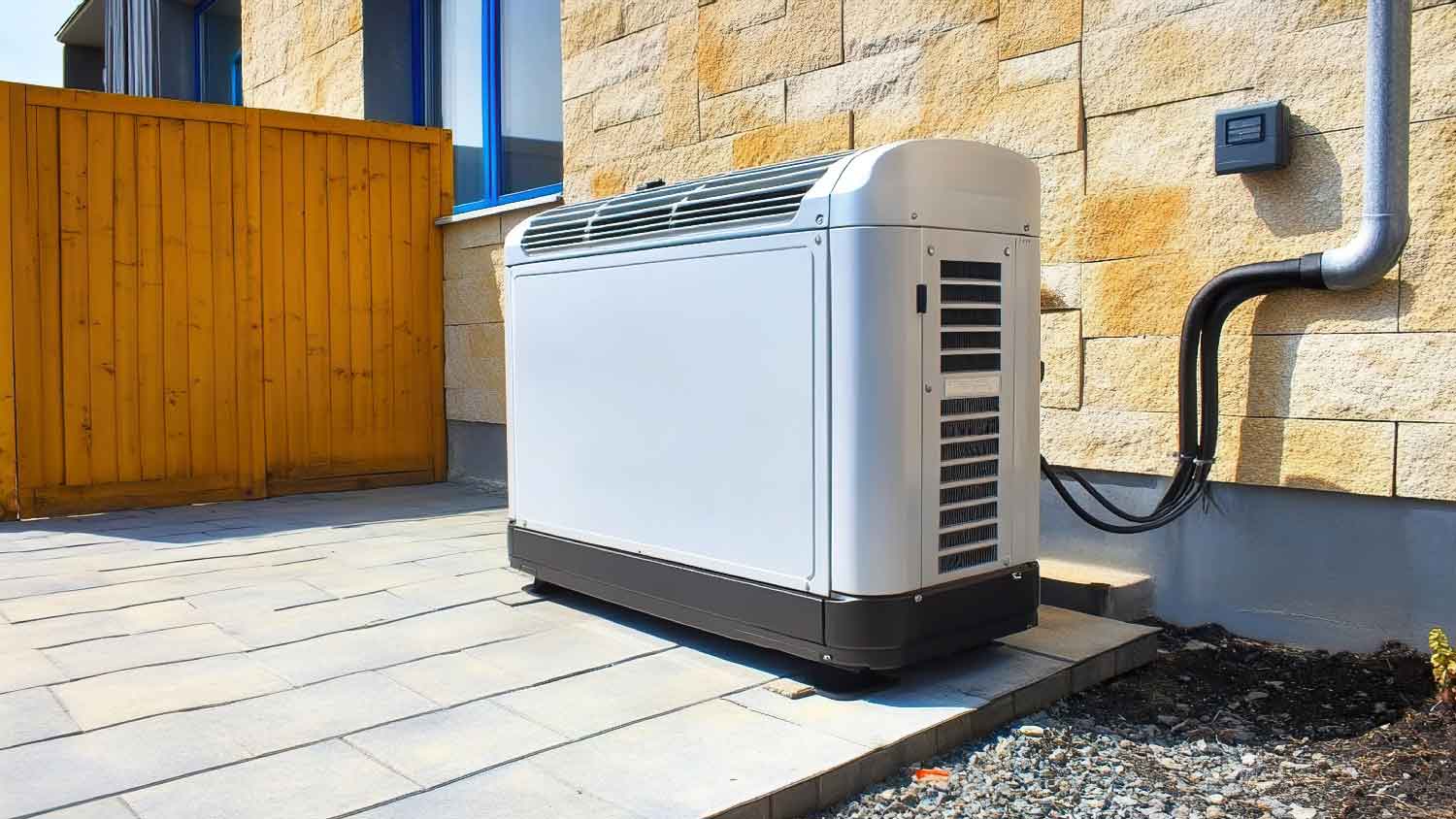
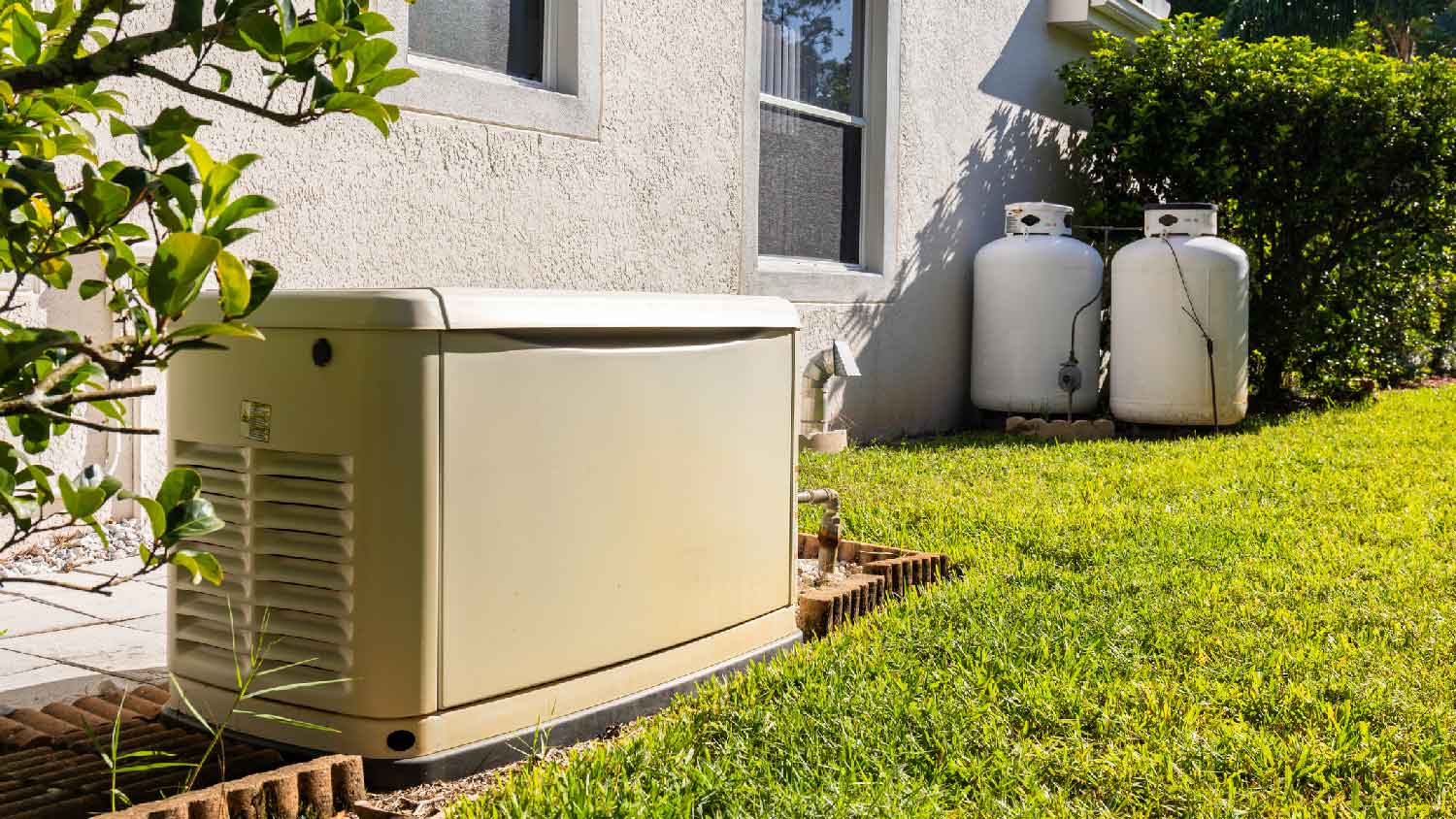
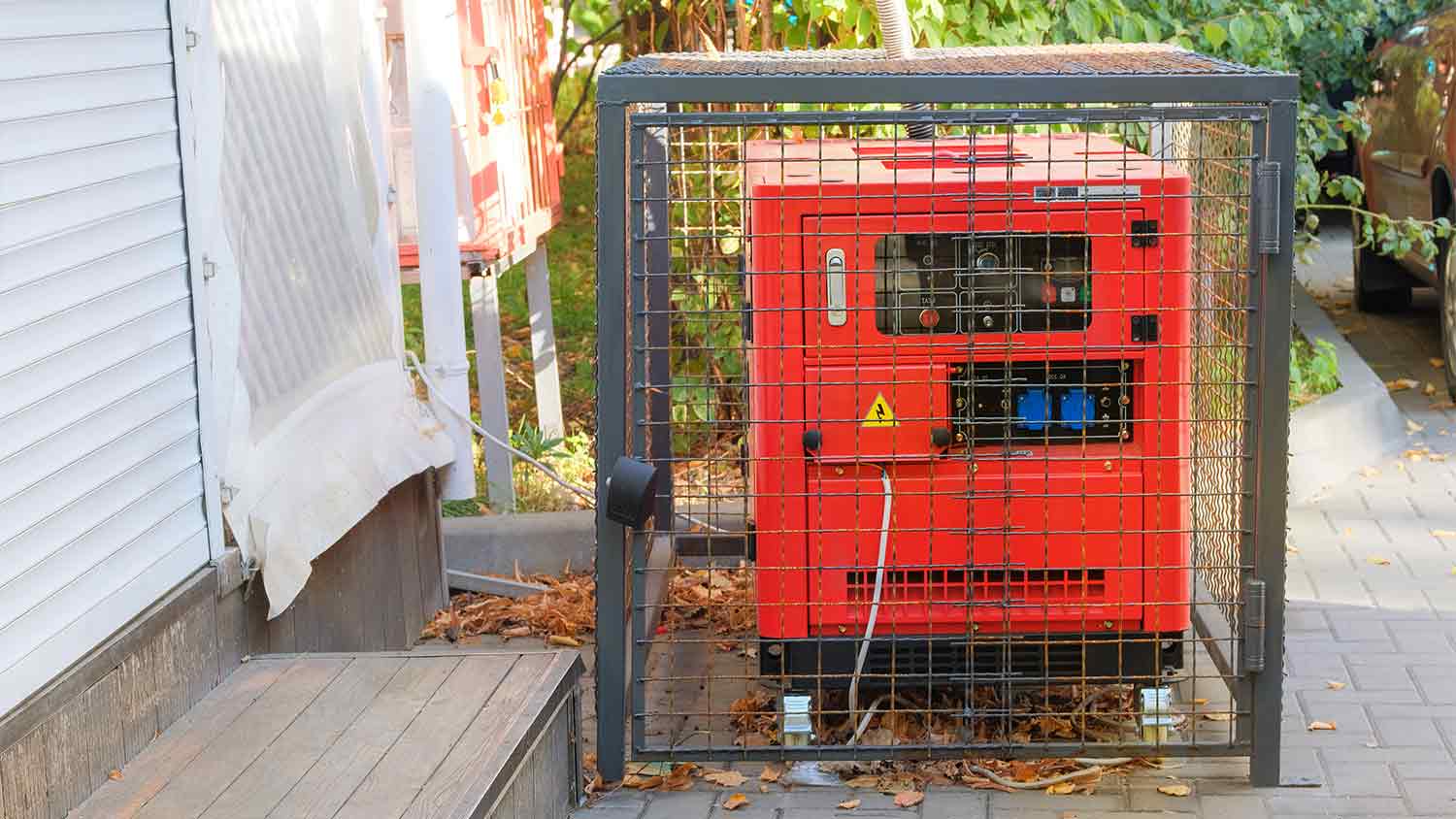
- Brownsville
- California
- Newell
- Fredericktown
- Roscoe
- Allenport
- Republic
- Grindstone
- Beallsville
- Stockdale
- Rices Landing
- Fayette City
- Speers
- North Charleroi
- Charleroi
- Ellsworth
- North Belle Vernon
- Belle Vernon
- Scenery Hill
- Bentleyville
- Cokeburg
- New Salem
- Smock
- Monessen
- Perryopolis
- Jefferson
- Lemont Furnace
- Mc Clellandtown
- Donora
- Carmichaels






